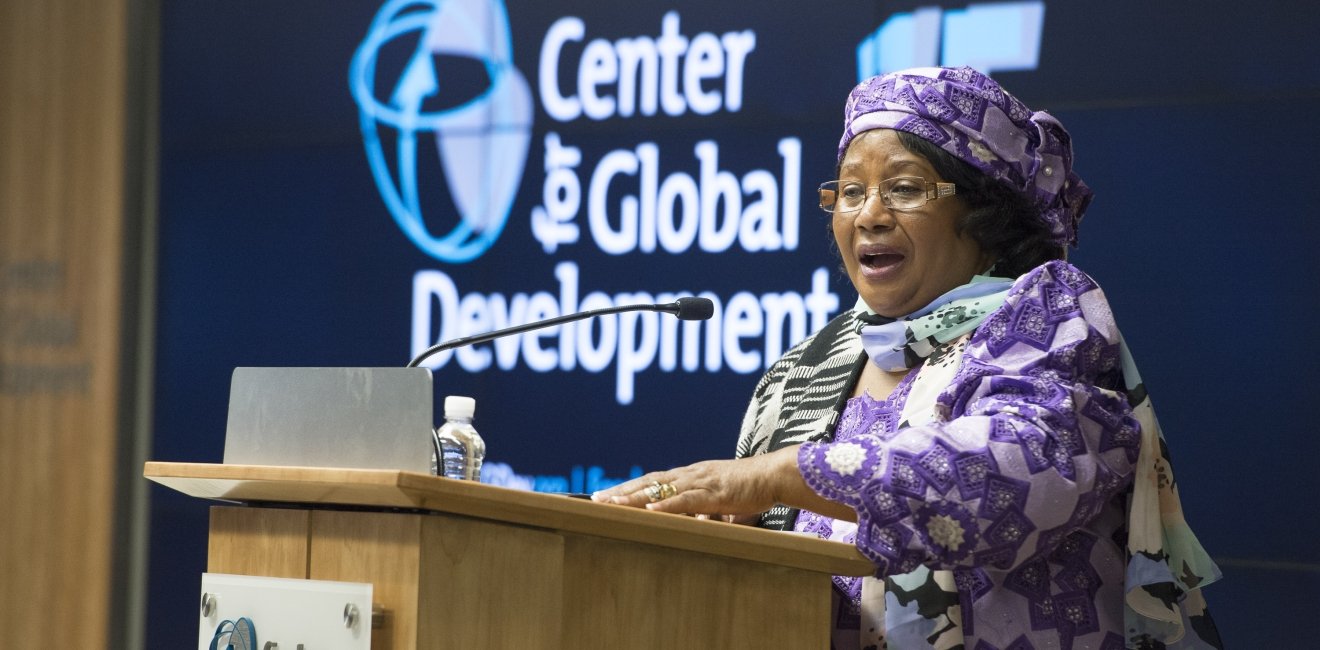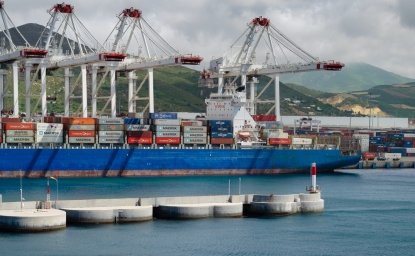On June 1, 2016, the Wilson Center’s Women in Public Service Project, Africa Program, the Global Sustainability and Resilience Program; and the Center for Global Development jointly hosted the event “Advancing Women’s Leadership: How Can We Support Political Leaders in Africa and Beyond?” The event featured former President of Malawi Joyce Banda as the keynote speaker. Introductory remarks were made by Nancy Birdsall, Founding President of the Center for Global Development, and Andrew Selee, Executive Vice President of the Wilson Center who announced that President Banda will be beginning a joint fellowship with the Wilson Center and CDG this August The panel included moderator Todd Moss, Chief Operating Officer of the Center for Global Development, and panelist Gwen Young, Director of the Global Women’s Leadership Initiative and the Women in Public Service Project
President Banda opened her remarks with a brief overview of the historical precedent for female leadership in Africa, remarking that “African women have always been leaders…but during colonial organization, we somehow [fell] behind.” She expanded on the current gender disparity by elaborating on why women deserve more equal representation today. She commented that women not only make up half of the population, but are also more inclined to use their political power to explore women’s and children’s issues that otherwise would go ignored. This supported her argument that Africa needs as many female leaders as possible in order to achieve the 2030 Sustainable Development Goals.
Although she praised global advancements in electing women to positions of authority, President Banda cautioned the audience that women’s power is not yet secure. Referencing the recent spate of critiques against women leaders in Asia, Africa, and South America, President Banda warned that “women’s leadership is under attack…If we don’t watch that, we will lose all we have gained.” Nevertheless, President Banda included a note of hope for African women, pointing to the historical rise and potential of women in parliaments and cabinets across Africa, which she styled the “continent of the century.” As President Banda rigorously stated, African women have proven they can be elected to public positions and that “whether they like it or not, we are here to stay.”
From here, President Banda shifted her focus to solutions for securing women’s leadership. President Banda advocated a unified approach, emphasizing the role of strategic partnerships between governments and the private sector. She commented that Africans need to take the lead in crafting their own development programs to maintain legitimacy and responsiveness to their populations.
President Banda concluded her talk by encouraging the women of Africa to “take charge…women themselves must realize that they are powerful.” She elaborated that women have a unique responsibility to serve as role models for the generations to come. According to President Banda, today’s women need to initiate change both within and outside the home, not only by standing for public office themselves but also by passing on new attitudes towards gender relations to their children.
Following President Banda’s speech, Todd Moss opened the panel discussion by asking Gwen Young what steps need to be taken to increase the percentage of women in politics. Ms. Young agreed with President Banda’s points that stressed the need for robust partnerships with private and international agents, adding that there also needs to be institutional change in government, legislation, and party politics. Both President Banda and Young advocated the creation of co-ed networks of women and men working together for gender parity solutions, with Ms. Young commenting that “it is through your networks that you see what is possible.”
When asked by Moss whether it is helpful for women candidates to highlight potential differences in leadership style, Ms. Young responded that while it is important for women to emphasize their skills and abilities, attributing those abilities to a specific gender quality risks backlash. President Banda added that in her own campaign, she received more support from men than women – proof, she said, of the success of an inclusive campaign that does not advocate for issues solely along gender lines. Building off of President Banda’s campaign, Moss moved the conversation to the different roles the international community plays during and after a leader’s presidency. President Banda affirmed Moss’ point about the disappearance of support once she left office.
During the question and answer period, audience members asked President Banda about her experiences developing leadership opportunities for girls, her advice for the emerging generation, and her opinion on Africa’s future in a weakening donor landscape. In her answers, President Banda emphasized the role of today’s women as models for the next generation. Above all, President Banda emphasized the necessity of economic support for women, pointing out that economic empowerment not only allows women to gain respect within their homes and social circles, but also provides women with a layer of security and the flexibility to escape violent or exploitative situations.







